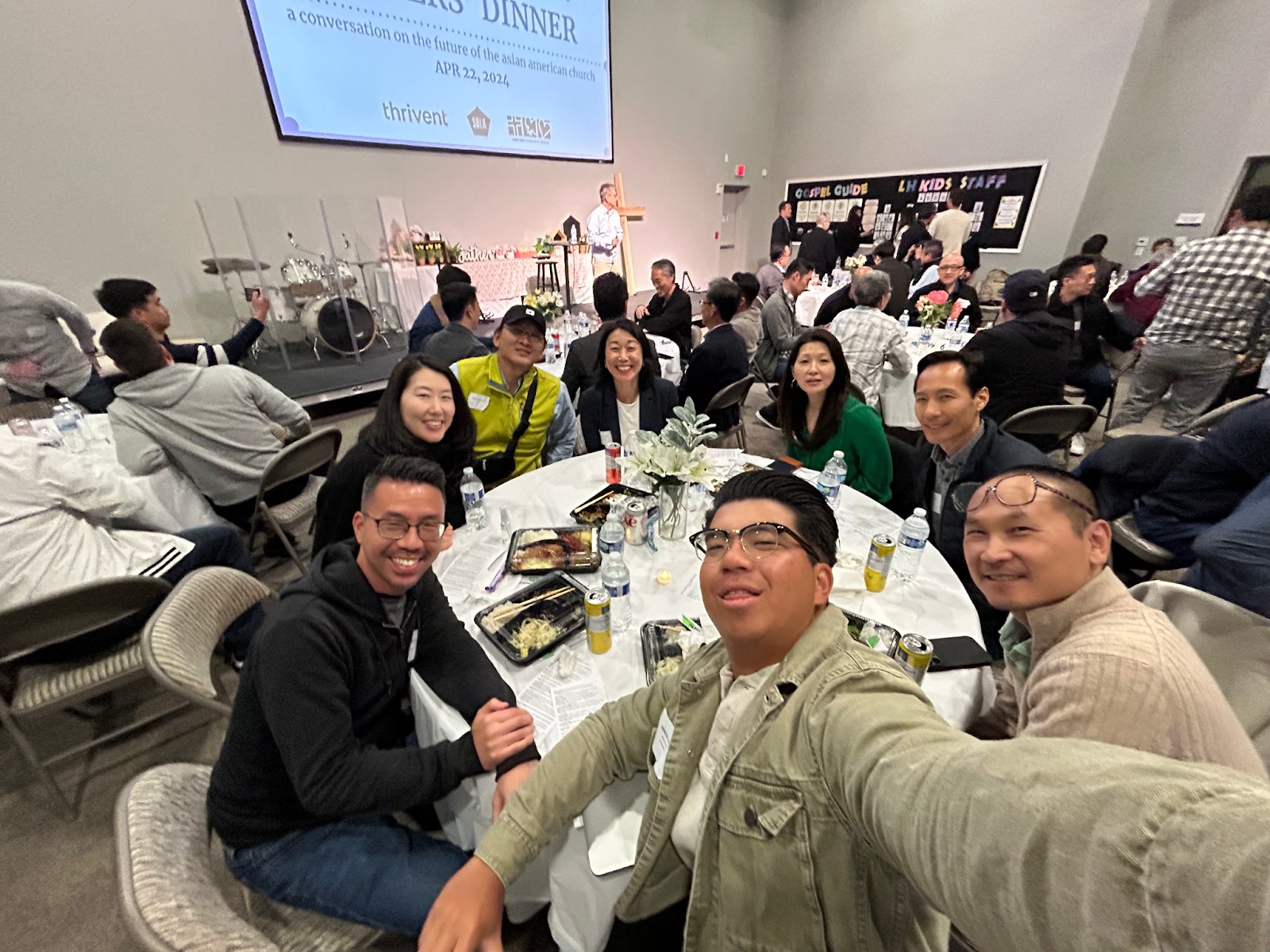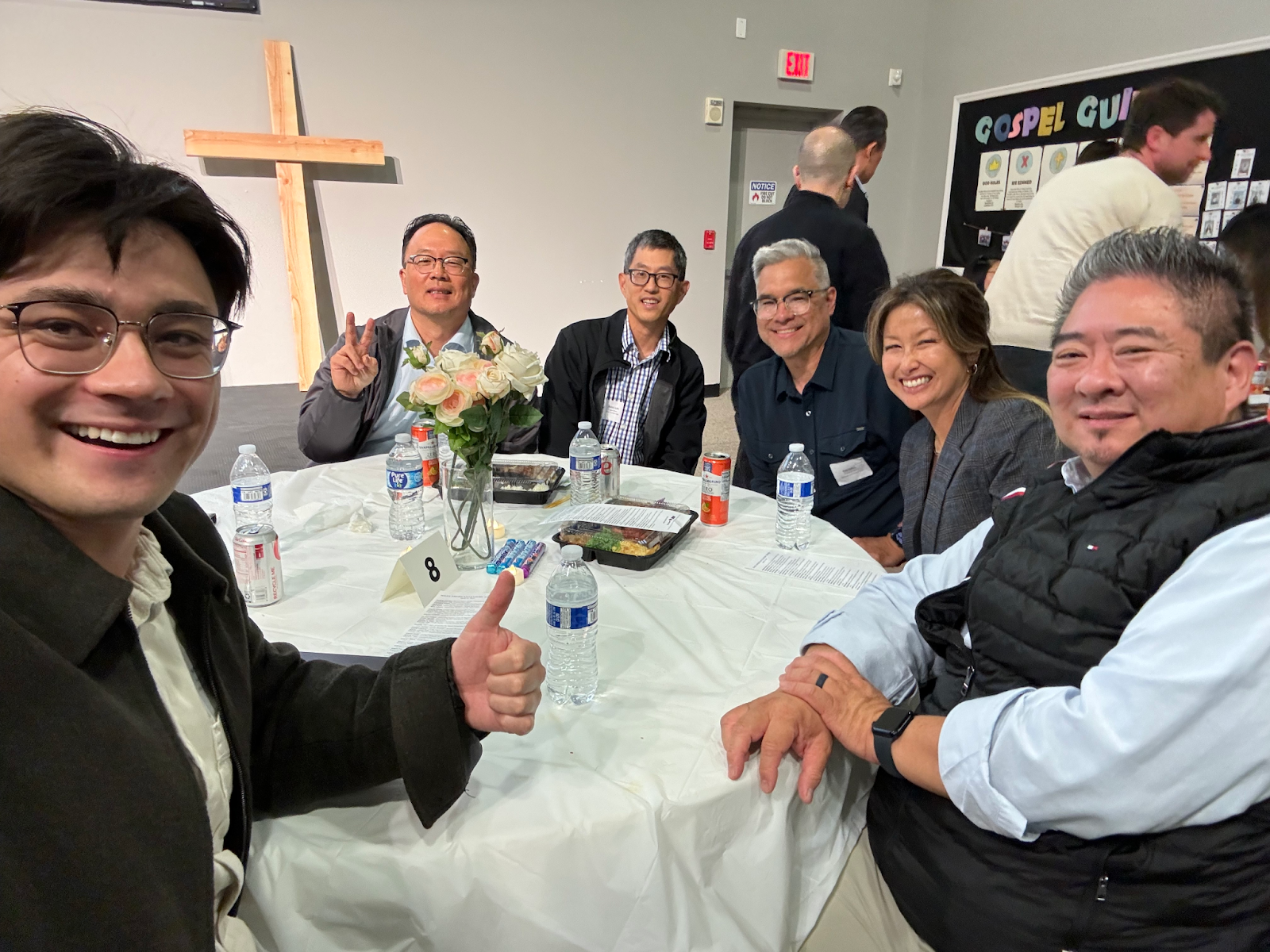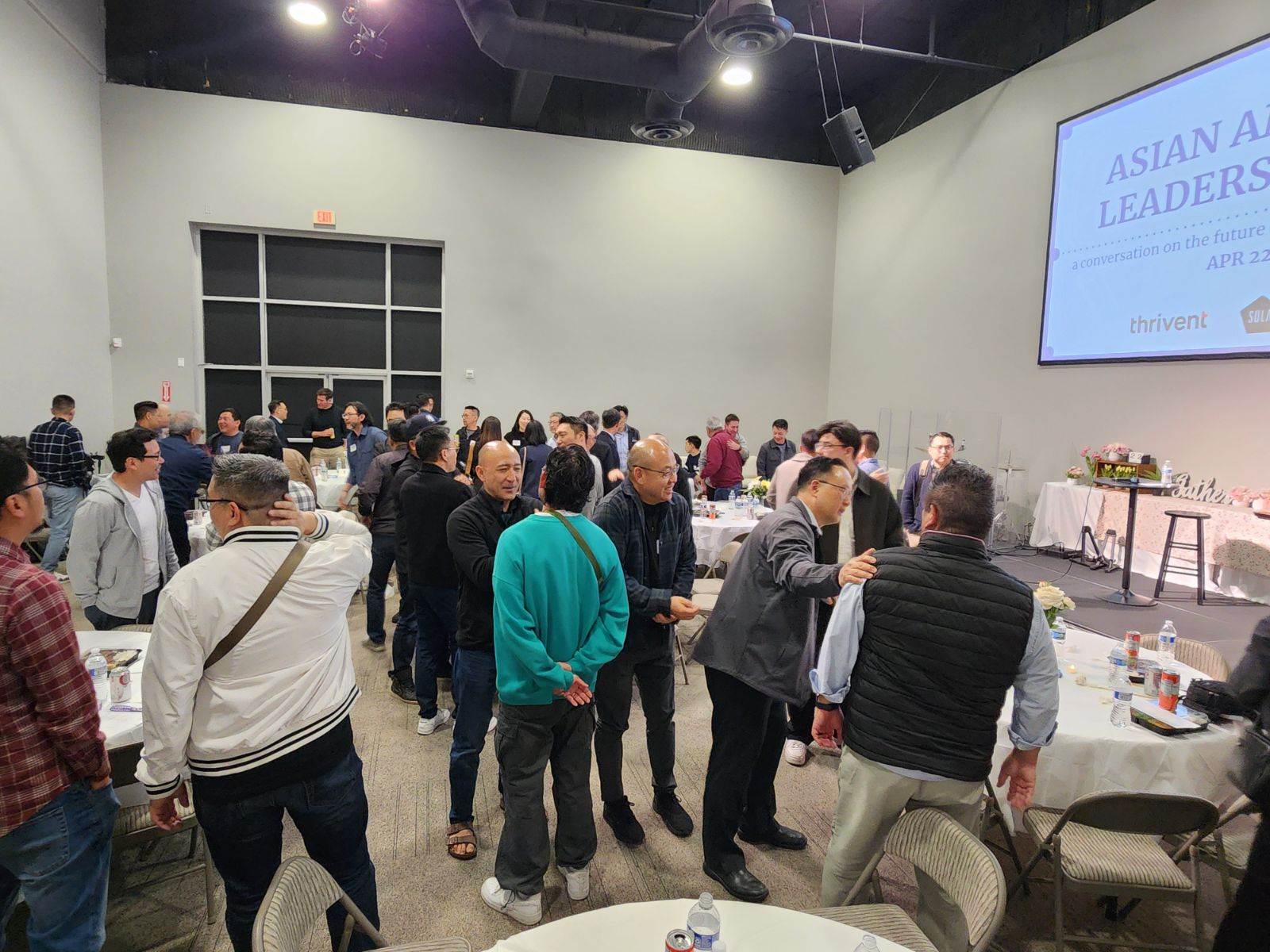The night before AALC 2024, Living Hope Community Church hosted a dinner with 70 Asian American Christian leaders. In addition to a night of meeting new friends and reconnecting with old ones, much of the time was dedicated to discussing the future of the Asian American church.
This Asian American Leaders’ Dinner included 70 men and women who pastor churches, teach at academic institutions, lead para-church organizations, and influence through writing.
Amongst the attendees were:
- 35 Churches with 22 lead pastors and many associate staff and lay leaders.
- 12 Organizations including SOLA Network, Korean American Leadership Initiative (KALI), Chinese Heritage Church Collective, Rooted Ministry, Barnabas & Co, Gracelaced, Mission to the World, AACC, TGC, Redeemer City to City, and others with many of the founders representing their organizations.
- 8 Academic Institutions (Talbot, Fuller, Gateway, Westminster, Western, etc.), including 12 full time professors or staff members, 2 deans, and 1 president.
- 59 Books authored, co-authored, or edited by this group.
What are some of the biggest THREATS to normalizing the gospel for the emerging generation of Asian Americans?
Ten tables of 6-8 leaders discussed the above question amongst themselves. While many themes emerged, the leaders identified five major threats for the emerging generation of Asian Americans to know the gospel. The findings are below.

1. Church Hurt
Many tables cited this as a threat that has already materialized in many young people who have walked away from the church that was led by the previous generation. While the reasons vary from the moral failures of church leaders, conflicts between the first and second generation, inconsistency in the pastor’s behavior toward the family, and other types of traumas experienced at church, the fallout of ‘church hurt’ is a dangerous threat if it continues to go unaddressed.
Greg Mah (Lead Pastor, South Bay Community Church) observes that “young people are leaving because of some form of church hurt.” Another leader observes that there is a “disconnect between the truth of gospel and negative experiences kids observe in church.” So much so that Jane Hong exclaims that bad, traumatic experiences at Asian churches is an understatement.
2. Formation by Social Media and our Affluent Age
Social Media platforms, like TikTok, generally have a negative effect on the mental well-being of young people. The more time spent on social media means less time spent elsewhere, including time spent towards biblical literacy and spiritual formation. Tom Kang (lead pastor of New Story Church) pointed out that even young people who identify as Christians may unknowingly be holding on to a type of syncretism—they believe in God but at the same time hold tightly to cultural influence: “Young people latch onto short clips rather than things of ancient roots.”
It is especially alarming as Daniel Kim (Youth Pastor, Christ Central Southern California) notes that such easy access to information through technology reduces the need to ‘learn’ anything:, “people don’t need to learn anything, they just need to look it up.” Though not new, Eddie Byun (Professor, Talbot Seminary) warns that with the popularity of ‘influencer culture’ there is an “idolatry of celebrity” and “young kids are shooting to be successful through public platforms on social media.” Everyone does what is right in their own eyes.
In addition, while the first generation looked to faith as they faced tangible hardships with language barriers, financial insecurity, and racial tensions, the latter generations who grow up in comfort and security see less of a need for faith in general. A change in immigration patterns has also contributed to the average immigrant from Asia arriving more financially prepared than previous generations. As Kathy Rim puts it, “When you’re comfortable and living well, why would you need Jesus?” Kim Kira (Lead Pastor, Lighthouse Community Church) likens the Asian American experience to the parable of the rich man: Asian Americans have achieved success in America, and thus feel less of a need for Christ and the church.

3. We are not ministering to the next generation’s needs
While the needs from generation to generation often change, leaders in the room expressed that we (the collective church) are not ministering to the felt needs of this emerging generation. John Kim (Senior Pastor, Lighthouse Bible Church LA) notes, “The things going on in our culture have a larger impact than we think. It’s not just about how to keep the church ‘going’ well. There is real danger in the culture of the world, and we don’t talk about it in our churches. For example, people who grew up in the church but struggle with same sex attraction or transgenderism feel like they have no one to talk to in the church. There are things considered too shameful to talk about in an Asian American cultural context.”
When the emerging generation is not ministered to by their churches about complex yet important topics, they may instead turn to social media to experience genuine authenticity that makes them feel ‘seen’. However it is there where they experience more isolation and process information without the presence of community (Jay Song, Lead Pastor, True North).
Cory Ishida (Founding Pastor, Evergreen Church SGV) notes that churches and parents need to be equipped in how to address key issues in order to dialogue with young people, instead of just having an attitude of condemnation.
4. Nominal Parents Means Weak Discipleship
Those raising GenZ and Gen Alpha may act in ways that don’t communicate the importance of faith in the household. For example, as one leader notes, “choosing a sports game over church on Sunday sends a clear message to kids over time on the order of priorities.” Expecting the church to have sole responsibility in catechizing the next generation is a threat from within the home.
This is related to #2 above. Without intentional parenting that brings ‘whole-life-discipleship’ into the home, it is difficult to raise up children who know who are grounded in Christ.
5. Fractured identity
Many leaders noted how the Asian American experience is one of ‘fracturing’ as we assimilate (Garrett Ho, Associate Director, Gateway Seminary). In the neither ‘here nor there’ space, it is often difficult to know where to turn to. As Janette H. Ok (Associate Professor, Fuller Seminary) puts it, “Where can you as a Christian grapple with theology, eschatology, and identity as an Asian American?”
Hanley Liu (Lead English Pastor, FCBC) also observes second generation ministries may have lost something in translation: “The first wave of the English ministries might have been about departing from the immigrant setting, but perhaps missed something by copying the mainstream church.” Kris Song (Elder, Trinity Presbyterian Church) also notes, “Something is given up. My kids who are now college age are having a hard time (having grown up in an assimilated, majority church). In Korean churches, they don’t feel connected. But they also don’t feel quite at home in a college majority culture Church either. They gain adaptability, but they lose a connection to the Asian church.”
While the above five themes are just a handful of many that were discussed, the result of the round-table conversations distill the needs of the emerging generation. In part 2 of this article, we will summarize the ‘strategic opportunities’ highlighted by the leaders at the dinner.

